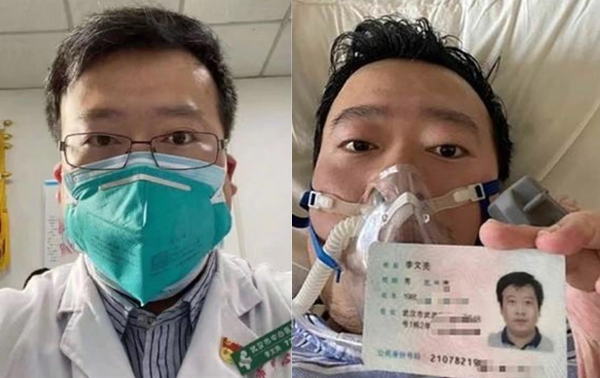Korean health authorities refused to test 1st MERS patient in 2015
As the Chinese doctor who first warned about the risk of a then-unknown novel coronavirus outbreak died due to the infection, the Korean medical community also expressed condolence along with regrets on social media.
China’s National Health Commission said Li Wenliang, an ophthalmologist at Wuhan Central Hospital, died at 2:58 a.m. on Friday, after suffering pneumonia symptoms.
On Dec. 30, Li saw a hospital record that seven patients who visited the hospital in Wuhan showed symptoms similar to those of SARS (Severe Acute Respiratory Syndrome). Li and his colleagues sent out a warning on social media about the new coronavirus outbreak.

Several days later, however, the Chinese authorities warned him that he was “making the public nervous by spreading false information.” Along with seven other physicians, Li went through an investigation by the police. It was in late January when the new coronavirus was spreading rapidly that the Chinese authorities apologized to Li.
Li treated patients infected with the novel coronavirus at Wuhan Central Hospital and started to have cough and fever on Jan. 10. After being confirmed with the virus infection on Feb. 1, Li was getting treatment at the hospital but died at the age of 34.
As news reports about Li’s death spread, Korean doctors shared the news on social media, expressing condolences. Some said he was too young to pass away. Others said he has done great work and blessed him to rest in peace.
Li’s death reminded doctors of Seoul’s poor response to the MERS (Middle East Respiratory Syndrome) outbreak in 2015. The first case of the MERS infection was identified by an infectious disease specialist at Samsung Medical Center.
On May 18, 2015, a patient having a high fever with breathing difficulty visited Samsung Medical Center. The attending doctor found that the patient had a history of traveling to the Middle East region and suspected he might have contracted the MERS virus. The doctor reported him as a suspected MERS patient to the health authorities immediately.
However, the Korea Centers for Disease Control and Prevention (KCDC) refused to test the patient, saying the MERS did not occur in Bahrain where the patient visited. The attending doctor demanded a MERS test again, and the patient was diagnosed with the MERS infection on May 20.
“Korea had difficulty confirming the first MERS patient. Many times, a professional medical doctor demands a test for an infectious disease. Still, the health authorities refuse to do so due to administrative guidelines,” said an official at a medical group requesting anonymity.
“The government could make the situation worse if they ignore experts’ opinions. If the health authorities continue to take their opinions lightly, this kind of outbreak will keep occurring.”

